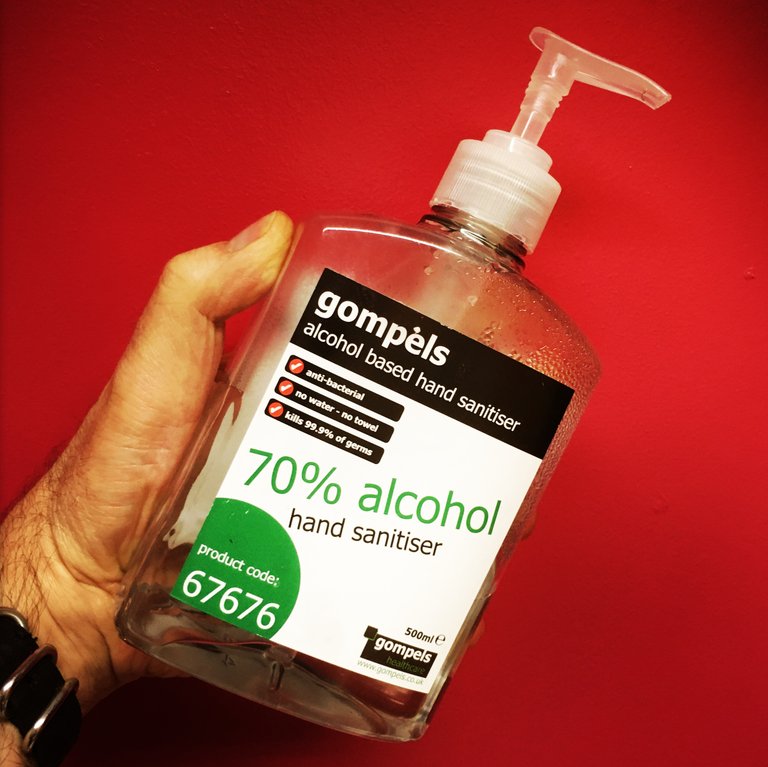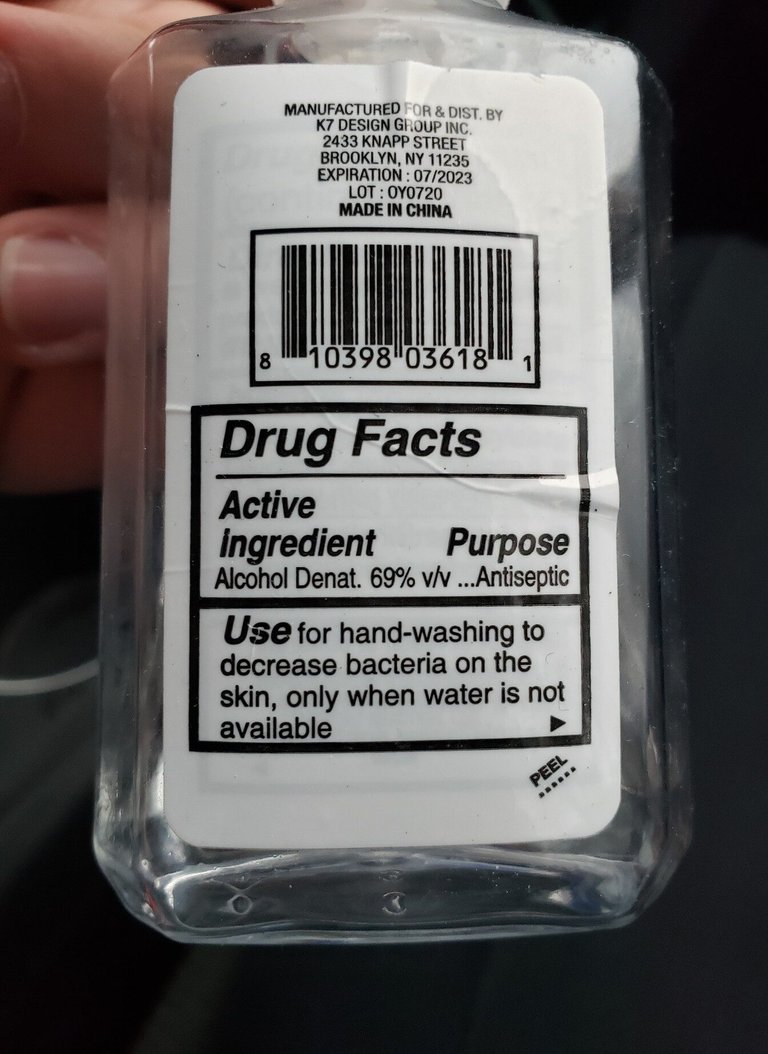Why Hand Sanitizers and Antiseptic Promise 99.9% Germ Removal
At my place of work and at home combined, I have never used sanitizer as much as I did during the pandemic period. My CMD will always say NNPC will not pay their medical wing in the grave so stay alive to continue working at the hospital. Asides from the covidd-19 pandemic which was severe compared to other flu epidermic, it is good to always have antimicrobial hand rub also known as hand sanitizer around.
But have you noticed that from antiseptic soaps to sanitizers, they always boast of one thing; Being able to kill 99.99% of germs and then you ask yourself what about the 0.01% germs that isn't killed, why don't the sanitizers do a good job of killing it all?
When I was discussing this with my cousin, he mentioned that it is actually a way of marketing for the companies and a way to get out of lawsuits in the event of a person using the sanitizer but still ends up being affected by germs. Well, the two hypothesis of my cousin sounded reasonable, if fact, if we were to be discussing business, there is no way I would have said he was wrong because it is just what is sensible for any business promising cure to people just like Companies that produce Malaria drugs always write that if symptoms persist after three days, one should see a doctor. They are directly telling you that you can use the drug before seeing a doctor so it will drive sales, and then they emphasize that you should see a doctor when it worsens or the drug is ineffective with the notion that the medication wasn't strong enough to resist the parasite. Whereas, they continue to say it aloud that self medication is bad.
All I mentioned with the business and hand sanitizer will look correct if it were to be business, but this is science, and there is a reason with science and we will discuss it now. The major ingredient for making hand sanitizer is alcohol, I am not saying this is the only type of hand sanitizer but it is the most used type and it works via a process known as denaturing by destroying the external defenses of viruses and bacteria which is usually either a protein shell or a lipid membrane.
The alcohol denatures the membrane as well as destroys certain proteins inside the cells thereby leading to death for the microbe. For these sanitizers to work, the alcohol content needs to be at least 60%, and water need to be above 10% because its effectiveness is also depended on water which is why 90% alcohol hand sanitizer is less effective as well. As you would expect that there are some germs that can survive the highest quantity of hand sanitizer.
This can happen due to a few things such as microbial resistance, where bacteria become resistant to alcohol. For instance Enterococcus Faecium which is a gut bacteria with distribution common in healthcare facilities is resistance to a lot of antibiotics as well as alcohol as scientists has seen that new strains of the bacteria are resistant to alcohol. This happened as a result of a change in their cell wall so as to be able to digest carbohydrate and since the cell wall is the first place of attack for a sanitizer, then its mutation blocked the effectiveness of the antimicrobial rub. Scientists also suspect that this could be as a result of people using sanitizers that are lower than 60% alcohol thereby allowing the bacteria to grow resistant to it.
Some microbes have strong protective shield against alcohol like that of Norovirus which doesn't have an envelope so there is no membrane wrapped around it rather it has a capsid which is a protein shell that is difficult to destroy with alcohol but bleach and heat can destroy the virus but they are harsh for us to begin with so using soap and water can do the trick.
Another way some microbes survive sanitizer is by producing spores like in the case of Clostridium difficile thereby causing the bacteria to be dormant thereby reducing activities and metabolic process that could be affected by heat, alcohol, and pH changes. While hand sanitizers cannot kill them, washing hands with soap and water will help to wash them off.
While there is the 0.01% to worry about, alcohol based sanitizer is the recommended for killing germs that are susceptible to alcohol. For now, thee 99.99% of hand sanitizer kills all of most germs.
REFERENCE
https://www.ajicjournal.org/article/S0196-6553(20)30562-9/fulltext
https://www.ncbi.nlm.nih.gov/pmc/articles/PMC7125647/
https://www.ncbi.nlm.nih.gov/books/NBK8477/
https://www.ncbi.nlm.nih.gov/books/NBK556071/
https://www.ncbi.nlm.nih.gov/pmc/articles/PMC5270584/
https://www.science.org/doi/10.1126/scitranslmed.aar6115
https://www.ncbi.nlm.nih.gov/books/NBK556147/
https://www.infectioncontroltoday.com/view/alcohol-based-hand
https://www.ncbi.nlm.nih.gov/pmc/articles/PMC7150055/
https://www.ncbi.nlm.nih.gov/pmc/articles/PMC7149786/
https://journals.asm.org/doi/10.1128/aac.01031-19


I believe every house should have this hand sanitizer because it actually helps and goes a long way to prevent germs
Thanks for your contribution to the STEMsocial community. Feel free to join us on discord to get to know the rest of us!
Please consider delegating to the @stemsocial account (85% of the curation rewards are returned).
Thanks for including @stemsocial as a beneficiary, which gives you stronger support.